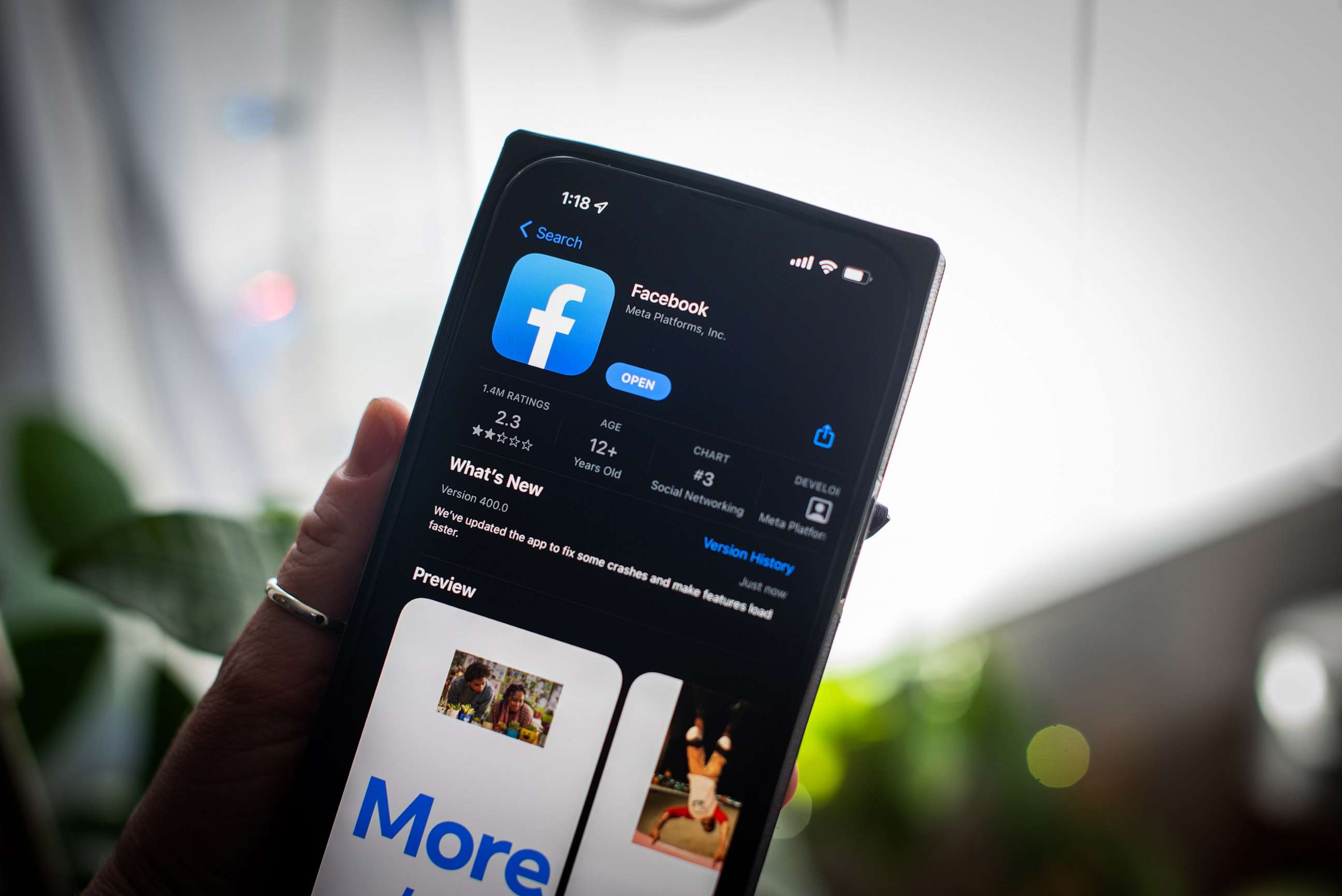Are Facebook, Instagram and YouTube more like newspaper publishers or telephone companies?
The Supreme Court on Monday was wrestling with that question in a pair of cases being called the most important tests of the First Amendment in the internet era.
The justices’ answer could be critical to setting the terms of online speech for generations.

The Facebook application on a smartphone arranged in Hastings-on-Hudson, New York, Feb. 1, 2023.
Tiffany Hagler-Geard/Bloomberg via Getty Images
Florida and Texas each passed laws in 2021 ordering social media platforms to limit content moderation (e.g. removing or devaluing certain posts, at their discretion) and requiring them to issue notice and explanation any time a user’s content is removed or account suspended.

The Supreme Court of the United States building are seen in Washington D.C., Dec. 28, 2022.
Celal Gunes/Anadolu Agency via Getty Images, FILE
Both laws were enacted following the platforms’ decisions banning then-President Donald Trump after Jan. 6 and conservatives’ longstanding concerns about the sites’ censorship of content based on politics.
The states argue that social media platforms are akin to “common carriers,” like utility companies, which are subject to government regulation, and must accept all users’ content regardless of viewpoint.

In this photo illustration, a TikTok App Logo is displayed on a mobile phone.
SOPA Images/LightRocket via Getty Images
But the internet companies insist they have the right to set their own standards, like any other publisher, and cannot be forced to host messages on their platforms that they don’t support, such as hate speech, misinformation and other malicious content.
Federal appeals courts have divided on the question: one striking down Florida’s law as a violation of the First Amendment, another upholding Texas’ law as permissible government intervention.
The nation’s high court is expected to deliver a decision in the cases by the end of June.

